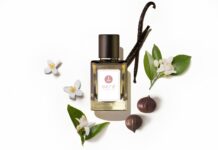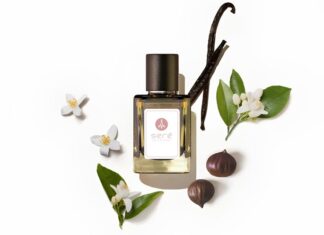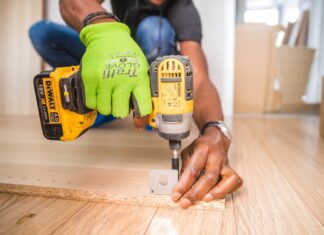Brand business, 1HQ Global, has released the findings of their investigation into what health actually looks like and means to people and brands around the world.
The global survey looked into the different aspects of health from supplements, exercise, sleep and diet and whether people’s perception of health had changed since the beginning of the Coronavirus pandemic and if this has influenced the way we perceive brands.
Shopping habits have changed, showcasing a big shift in the way we view health. Exercise equipment sales have increased, vegan diets have become the norm, and there has been a dramatic uptake in the consumption of supplements and wellbeing products. When asked how health-conscious survey respondents were now in comparison to six months ago, 58% polled stated they were a lot more mindful of their health.
However, despite this increase in consciousness, almost half (48%) of respondents reported that while the pandemic has made them more aware of their own health, they haven’t actually taken any measures to change their lifestyle or habits.
The findings from the investigation suggest that packaging, and the way brands promote their health benefits could be a key indicator for consumers when purchasing. The majority of participants (65%) said that it was very important for brands to highlight the health benefits of their products and a further (57%) said they would definitely be more likely to buy products that highlight the health advantages.
In fact 36% said this might convince them to make a purchase.
David Collyer, 1HQ Chief Growth Officer, said, “This is a great opportunity for brands to dive into a potentially untapped market, to secure and engage in this audience to utilise their desire to change their attitude towards health in the simplest form. Simply by highlighting any health benefits on products, brands could see a potentially huge increase in sales.”
Wellbeing
Table of Contents
The health and wellness industry, already a booming $4.5 trillion business, has seen a particularly marked change as housebound consumers adapted to life without gyms, fitness studios or easily accessible doctors’ visits, and overall reconsidered what it means to be well in the age of a pandemic.
With 63% of respondents expressing that they were more focused on preventative health now compared to six months ago, it would seem that many people’s attitude towards precautionary health has shifted.
Collyer said, “Pre-pandemic, there was a strong focus on reactive health with a push on products and brands to help once an illness or situation has developed. However, the data achieved from this survey shows that brands should expand with the changing needs of people and shift a focus to precautionary measures, to really utilise their market.”
Another area that has seen growth during the pandemic is that of telehealth, which makes accessing remote healthcare simpler. In fact, the number of U.S. consumers using telehealth rose from 11% in 2019 to 46% this year. As adoption continues, it’s estimated that up to $250 billions of current U.S. health care spending could be shifted to telemedicine.
Interestingly, the survey found that women were more likely to use preventative measures than men who were more likely to use reactive procedures, such as taking paracetamol once they were already sick, as were 18-24- and 35–44-year-olds.
Fitness
With the most popular health goal for people in the next five years to better their fitness, (65%) it is not initially surprising that despite the lockdowns of gyms, many fitness brands had a strong 2020.
The pandemic seems to have accelerated fitness and wellbeing companies’ revenues to extraordinary lengths this past year, with cycle-centre exercise bikes, Peloton seeing a 66% increase in revenue and Mirror, the interactive wall glass that acts as a compact home gym, was bought for $500m.
As the pandemic lockdowns closed gyms and fitness centres, the popularity of home workouts boomed over the last year. In fact, Google search terms for ‘home workout’, ‘home gym equipment’ and ‘home yoga’ saw a 600 percent increase at the beginning of global lockdowns in April of last year.
Though at-home workouts have been popular for decades, experts suggest that this boom is here to stay despite the opening up of exercise venues.
Nutrition & Diet
Fitness came out on top of which health goals consumers wanted to better in the next five years, but it was closely followed by diet (47%).
The survey suggests that most consumers consider the number of calories and protein within food when making their choices. The majority of respondents (58%) said that calorific content is important to them, and the same percentage said that protein content is a deciding factor.
The survey revealed that women are more likely to focus on protein content rather than calories, whereas men appear to rank the two as equally important.
Collyer said, “The pandemic has clearly made an impact on how global consumers eat, exercise and generally look after themselves. It is important that brands take note and maximise this opportunity.
Health and lifestyle aren’t separate entities for the modern consumer anymore, people don’t have to make the extra effort to be healthy, but instead, the two elements should effortlessly weave into each other. Brands should make intentional considerations to include and highlight their health benefits without having to sacrifice taste or quality.
We found that 57% of consumers would be more likely to buy products that highlight the health advantages on pack, with 36% noting that this would convince them to make a purchase.”
You can read a full breakdown of 1HQ’s ‘What is Health’ survey here, where they also look at brand messaging, ethos and shopping habits post-pandemic.
About 1HQ
1HQ Global is a network of companies built to help brands meet the challenge of change through the integration of sustainable design, digital and social communications, and marketing mix optimisation. Working in over 35 countries from studios in London, Amsterdam, Singapore and New York, a team of curious creative and committed brand specialists, ask and answer the hard questions that determine how brands should be positioned, how they should innovate and how they are best represented through design and communication. Focusing on the development, deployment to market and ongoing evaluation of brands in fast-moving consumer goods and healthcare markets, 1HQ have partnered with organisations such as Unilever, Nestlé and Tesco.
Find out more at 1hqglobal.com.










